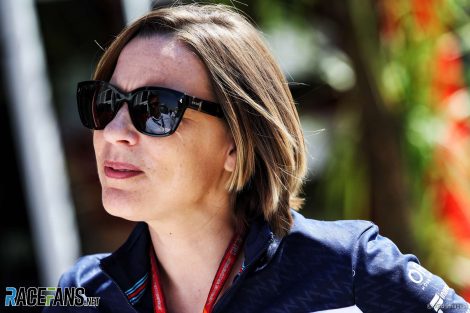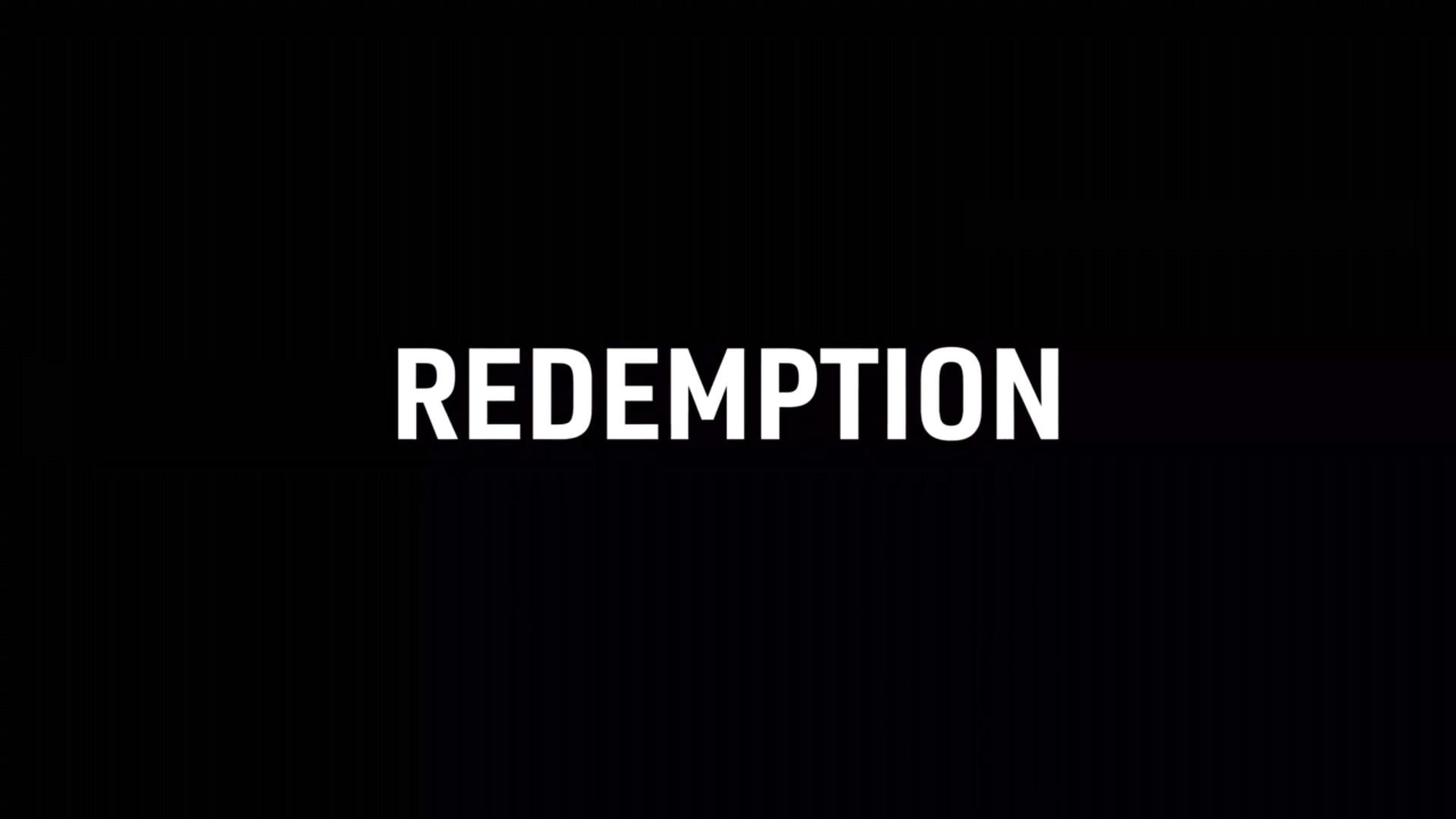“No one wants to come last in any sport but particularly so in Formula 1. And it’s all to do with money. There’s a sliding scale of payments and being bottom means they get the smallest slice of pie.”
This quote from episode three of Netflix’s F1-sanctioned series “Drive to Survive” stands out for a couple of reasons.First, because previously it was extremely rare for F1’s representatives and PR team to make any mention of how teams are paid. We’ve come a long way from the days when, while asked by a journalist at the 2000 United States Grand Prix how much prize money teams received, Bernie Ecclestone snapped back: “None of your business”.
The quote also stands out because it’s not exactly right. The team which finished last in 2018, Williams, will not receive the “smallest slice of pie”. As RaceFans revealed last week it will get more money than three teams who beat them: Toro Rosso (ninth), Sauber/Alfa Romeo (eighth) and Force India/Racing Point (seventh).

A much-talked-about sequence in “Redemption” sees deputy team principal Claire Williams admitting she questions whether she is the right person to lead the team her father founded. We see her put on a defiant face in front of the assembled Williams staff as the team face up to the joyless season ahead of them. Behind the scenes, the testy exchanges between Williams and backer Lawrence Stroll – who at the time was casting jealous glances in the direction of Force India – are positively excruciating.
This subject deserved an episode all to itself, but episode three also picks up the Daniel Ricciardo thread which started in the season-opener. The Baku collision between him and Max Verstappen was seen in episode two, and “Redemption” opens with Red Bull team principal Christian Horner being asked (by an unidentified voice) “how pissed off” he was about the race-ending collision. “Very”, is his predictable retort.
The storyline of Ricciardo’s contract negotiations is woven in through a couple of scenes featuring him and manager Glenn Beavis. These may not have been staged for the benefit of the cameras, but they sure feel like they were.
The Monaco Grand Prix provides the backdrop for the Red Bull and Williams storylines to play out. Those not familiar with the backstory are shown how Ricciardo was robbed of a nailed-on win at the track two years earlier. Ricciardo’s MGU-K failure in the closing stages of the race provides the required tension.
Pre-race, Williams talks optimistically about the chance a few of their rivals might get taken out at the start, giving them a chance to pick up some points. Of course there was no happy ending for them. And, almost a year on from the events of this episode, things haven’t really changed.
Advert | Become a RaceFans supporter and
Drive to Survive Episode 3: Redemption – Spoilers
Red Bull’s handling of the Baku episode clearly rankled with Ricciardo. Officially, the team cleared both drivers of blame. Behind the scenes, Ricciardo tells the cameras “I was sure of what happened, I was sure I wasn’t the cause of it, but I was kind of made to feel guilty.”
The programme doesn’t really delve into the nuances of the Baku collision: The wheel-banging moment early in the race which should have served as a warning sign; the fact Ricciardo passed Verstappen but fell behind again through the pit stops, and the extent to which Verstappen disguised his old-tyre pace to pull that off.
Facing her staff, Claire Williams firmly rejects any suggestion they might adopt a ‘B team’ role in the future: “Over my dead body”, she tells them. It’s not hard to imagine this became a point of conflict with the Strolls, who now have something much closer to that arrangement at Racing Point.
The programme makers even teased a telling quote out of Lance Stroll, one of F1’s least forthcoming drivers in front of a microphone. “I know I was born with a silver spoon in my mouth,” he admits after being introduced as the son of the team’s billionaire backer.
Advert | Become a RaceFans supporter and
Reviews
- “F1 Racing Confidential: Inside stories from the world of Formula One” reviewed
- Max who? Drive to Survive season six prefers its favourite faces
- “100 Years of Legends: The Official Celebration of the Le Mans 24 Hours” book reviewed
- “Starting from the Back of the Grid” by Kris Henley reviewed
- “Benetton: Rebels of Formula 1” book reviewed





Fons (@fons)
7th March 2019, 11:40
However, it is very funny that it’s only a problem if Ferrari earns more. When Williams gets more than those in front of them hardly anyone in the British media (writers and commenters) say a thing. Ironic isn’t it? The rules should be that either everyone gets the same cut or you get paid according to the place in the standing you earned the year before.
Ben Needham (@ben-n)
7th March 2019, 12:03
To be honest, I’m not opposed to long-standing teams (ie: Ferrari, Williams, McLaren) getting bonus payments for longevity. The longer you’re part of something, the larger slice you should get. Take Renault as an example, they’ve flitted in and out of the sport many times. Perhaps if they were rewarded for staying in it, they’d have considered weathering the storm in the early 2010’s, rather than leaving and returning, throwing a team into uncertainty.
The more teams, the better. I don’t think it’s currently done as I would personally do it; ie: £/$x million per consecutive year in the sport after five years, or something like that.
kpcart
7th March 2019, 12:11
I agree, but ill tell you the whole world isn’t British, and speaking 3 languages, I see a different story in other countries on the whole f1 presents than the English speaking media. Team principals are basically just paid actors or poleticians, they only speak a party line, that’s what they are paid to do, I hTe how there is so much Claire Williams bashing for willuams plight, all she is is the voice of the team, she has no input in developing the car. Binotto at ferrari being the team principal is a mistake for him, he needs to be involved in the car development.
anon
7th March 2019, 20:19
@fons, in the case of Williams, it is probably because the bonus they get is significantly smaller ($10 million, as opposed to $73 million for Ferrari’s LST bonus). That means that the amount they are paid, which was $60 million, is still very similar to that of the other teams around them ($59 million for Force India or $56 million for Sauber).
I would guess that, because the overall payments are similar, it does not feel disproportionate in the way that Ferrari’s LST bonus does when the LST bonus is worth more to the team than their performance related “Column 2” payment and is worth as much as the entire earnings of Renault (which finished 4th in the WCC last year).
The relative wealth of the two organisations is also another aspect: the raw financial musclepower of Ferrari comfortably dwarfs that of Williams, and that wealth disparity sits uncomfortably with observers.
Ferrari’s annual turnover is in the order of €3.4 billion, whereas Williams’s annual turnover from all of their activities is in the order of £160 million: it takes just three weeks for Ferrari’s annual turnover to exceed Williams’s annual turnover.
Williams’s interim financial accounts for 2018 pointed towards the team making a loss last year, and even in favourable circumstances their profits are about £5-10 million (a net profit margin of a few percent). By comparison, Ferrari made a net profit of €787 million in 2018 – a net profit margin of 23%.
For a company like Williams, the perception is that bonus is basically helping to keep the team alive. For Ferrari, by comparison, if they had not received the LST bonus, it would have basically trimmed their profit margin from 23% to 21% – it’s basically a rounding error in their accounts to them.
Toxic
8th March 2019, 23:12
This episode really puts Daniel’s 2018 into perspective.
Homerlovesbeer (@homerlovesbeer)
9th March 2019, 14:46
The fued between Horner and Abiteboul is a classic….
A personal feud between Horner and Abiteboul is one of the recurring themes in the documentary.
Cameras first captured the incredibly awkward moment the two team bosses came face to face during the 2018 season after Red Bull announced its plans to leave Renault as its engine supplier for rivals Honda.
Horner regularly publicly criticised the power and reliability of Renault engines during the season and reiterates in the documentary that “with that engine supply we were paying to fly first class, but ended up with an economy ticket”.
Bumping into each other as they wait to walk into a teams briefing, the pair are seen refusing to acknowledge each other’s presence despite standing just a couple feet from each other with nobody else around.
After more than 10 seconds of awkward silence Horner eventually breaks the tension by asking Abiteboul if his Renault factory executives were at the track for that race — on the day the team suffered the black eye of Red Bull’s decision to leave.
Abiteboul, however, got his revenge a couple months later when he was able to snatch Ricciardo away from Red Bull.
The two rival bosses were again filmed trading some barbs before a meeting the day after Ricciardo’s contract bombshell.
With a cheeky grin on his face, Abiteboul was filmed telling Horner: “You need a driver and an engine”.
With a displeased expression on his face, Horner responds: “Yup. Have you got any money to spend on your engine now that you’ve spent it all on your driver?”
Abiteboul responds by saying: “We have plenty of money”.
Kurik
9th March 2019, 20:14
I just want Renault to beat Red Bull and get more podiums for a few years back to back and end as 3rd best just because I don’t like Horner very much and as an extension – Red Bull. Have huge respect for them (especially newey) but don’t like them.
ed
9th March 2019, 23:59
the whole team became incredibly unlikeable after they achieved success.
Homerlovesbeer (@homerlovesbeer)
12th March 2019, 1:59
It’s quite clear Horner is pretty cool to Ric even at the start of the year prior to Monaco.
Horner “Important year for Daniel with his career, cause he’s very much at a crossroads. We’d love to extend the agreement with him but do you know what, if he doesn’t want to be here, that’s Formula 1, it’s a big boys sport.”
Geri to Horner “so what’s coming up in the next few races?”
Horner “Um Monaco is the next race.”
Geri “Is this one of your favourites?”
Horner “Yea. Be good to see Max have a result.”
No “We screwed Dan over previously, would be good to make amends.”
Some interesting bias from Horner and it’s early in the season. “Max has got that, sort of, magic dust around him, he’s the next generation coming through.”
I doubt Dan was EVER going to stay at RBR after watching this.
maarten (@maartenph)
19th March 2019, 13:00
Yes, but at that time Max had some bad races whereas Ricciardo had won one already. It should explain to some extent why he was focused on Max having a good result.